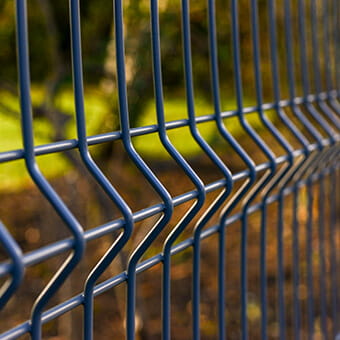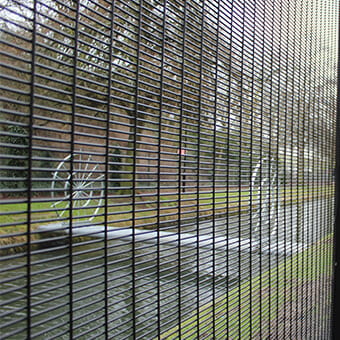Our other sites:
Accreditations can indicate that a product has been proven to meet specific standards set by independent regulators. They imply that there is concerted effort on the manufacturer’s part to adhere to the highest industry standards.
To help specifiers identify the difference between high-quality, accredited fencing and gates and non-accredited products, we’ve put together a summary on the accreditations to look out for.
Accreditations relating to security
For low to medium risk sites, ensure that the fencing or gates are accredited by Secured by Design (SBD), the police organisation that seeks to reduce the risk of crime through good design. It works with industry bodies and manufacturers to tackle the variations that exist in product quality, improving standards to reduce home burglary and crime. Installing SBD-accredited products can reduce insurance premiums and the time involved in specification too.
Whether it’s a low, medium or high risk site, we also recommend considering fencing and gates that have been tested to LPS 1175 by the Loss Prevention Certification Board (LPCB). Specifically, LPS 1175 evaluates the resistance to unauthorised access offered by various physical security products. It comprises of a number of security classifications ranging from A1 to H20, formally known as SR1 – SR8. Security ratings are measured in terms of attack tool and time available to the attacker and enables specifiers to select products according to the risks that the project might face.
The Loss Prevention Standard is continually reviewed and adapted to address emerging and developing threats, such as the increasingly effective tools available to intruders and the range of advanced methods they may employ. This latest issue of LPS 1175 was devised to improve the testing guidelines for security products, enabling a more realistic scope for Security Ratings. Issue 8 is more conducive to supporting a layered approach to security.
With LPS 1175, security decision makers can adapt their security measures according to a number of conditions such as: the tools intruders are likely to use; approach routes; the strength and stamina required to carry certain tools; whether attackers need to conceal the equipment; and how much noise they will make. It also provides specifiers with greater flexibility when specifying security solutions: they can choose products based on the delay in response time and tool set independently, rather than selecting from fixed combinations of the two.
Acoustic fencing, timber products and automatic gates
If you’re specifying acoustic barriers, it is important to consider what type of noise the barrier will mitigate. If it’s road noise, make sure it is UKCA marked under BS EN 14388:2005. This is the official standard required by all the Highways authorities in the UK (England, Scotland, Wales and Northern Ireland) to allow the supply and installation of noise barriers for use in the reduction or mitigation of road traffic noise.
UKCA marked single components that are combined to make a noise barrier are not considered a UKCA marked system unless the combination of post, panel, fixings and installation have been type-tested to BS EN 14388:2005. With regards to the responsibility of UKCA marking, this falls to the party who is introducing the noise-reducing system for the final incorporation in road construction; for example, the company undertaking the construction works for a highways project.
With timber products, make sure the wood has appropriate environmental credentials. This means only sourcing timber from well-managed forests that are compliant with either the Forest Steward Council (FSC) or Programme for Endorsement of Forest Certification (PEFC) schemes. Products marked as certified in accordance with either of these programmes can prove that the timber has been checked at every stage of processing and that they come with the guarantee of a complete chain of custody certification. These programmes are excellent for supporting sustainable forest-management, protection of endangered species, and reducing the effects of climate change.
Finally, with automatic gates, they must be UKCA marked to be legally compliant and conform to The Supply of Machinery (Safety) Regulations 2008. This shows that the manufacturer has checked that it adheres to safety, health and environmental requirements and legislation. Safety is of paramount importance and we take great care to ensure that all our gates are manufactured in accordance with the highest possible standards. Our gate automation is supplied fully UKCA accredited and conforms to all the current regulations.
If you would like more guidance on accreditations to look out for when purchasing fencing or gates, simply contact us today.
Related products
Jacksons Security has a range of products relating to this article, all complete with our 25 year service life guarantee. If you cannot find the item you are looking for, please do not hesitate to call our friendly sales team.
Related Content
Top






